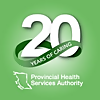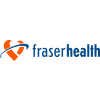Nurse Practitioner, Cardiac Services
BC Children’s Hospital
Vancouver BC
New Grads are welcome to apply!
Working with the Pediatric Cardiac Surgery Team, Pediatric Cardiologists and Interprofessional Cardiac Services Care Team, the Nurse Practitioner initiates treatment for cardiac patients including health care management, therapeutic interventions and prescribes medications in accordance with the statutory and regulatory standards, limits and conditions, and employer policies and procedures.
Nurse Practitioners provide professional guidance to other health professionals in the care of pediatric cardiac patients and families, and participate autonomously as members as the interdisciplinary health teams making referrals to specialist physicians as appropriate.
Nurse Practitioners collaborate with clients and other health professionals to identify and assess trends and patterns that have implications for clients, families and communities;
develop and implement population and evidence based strategies to improve health and participate in policy-making activities that influence health services and practices.
BC Children's video :
What you’ll do
- Diagnose and treat previously undiagnosed clients for undifferentiated diseases, illnesses and conditions within the Nurse Practitioner’s scope of practice.
- Order appropriate screening diagnostic investigations; interpret reports of investigations and analyze information to monitor progress and plan treatment.
- As part of the multidisciplinary team, develop and implement treatment plans.
- Write orders for treatment and medications; make patient rounds as appropriate and monitor ongoing care, providing first line care in emergencies.
- Establish priorities for management of health conditions; provide follow-up treatment; communicate with clients and families about health findings, diagnoses and prognoses;
support and counsel clients in their personal responses to diseases, disorders and conditions.
Collaborate and / or consult with physicians or other health care and social service providers as appropriate to assess and diagnose client status.
Accept referrals from, or make referrals to, physicians and other health professionals.
Prescribe drugs within the statutory and regulatory standards, limits and conditions for Nurse Practitioners and within applicable employer policies and procedures.
Apply knowledge of pharmacology and evidence-based practice in selecting, prescribing, administering and monitoring the effects of drugs to treat diseases disorders, conditions or injuries.
What you bring
Qualifications
- Current registration as a Nurse Practitioner with the British Columbia College of Nurses & Midwives (BCCNM)
- Must be eligible to complete the Objective Structured Clinical Examination (OSCE) through the British Columbia College of Nurses & Midwives (BCCNM).
- Minimum of (4) years of recent, relevant clinical nursing experience.
- Ability to perform the full scope of Nurse Practitioner duties and responsibilities.
Skills and Knowledge
- Define and articulate the specific areas of practice and client population for whom the NP is competent to provide health care services.
- Self-direct, interact, and adapt effectively with other professionals in complex, dynamic situations.
- Communicate and collaborate with patients and families about health findings, diagnosis, treatment, self care and prognosis.
- Communicate effectively and build relationships with nurses and other health professionals and disciplines using a variety of communication strategies.
What we bring
Every PHSA employee enables the best possible patient care for our patients and their families. Whether you are providing direct care, conducting research, or making it possible for others to do their work, you impact the lives of British Columbians today and in the future.
That’s why we’re focused on your care too offering health, wellness, development programs to support you at work and at home.
- Join one of BC’s largest employers with province-wide programs, services and operations offering vast opportunities for growth and development.
- Access to professional development opportunities through our in-house training programs, including +2,000 courses, such as our San’yas Indigenous Cultural Safety Training course, or Core Linx for Leadership roles.
- Enjoy a comprehensive benefits package, including municipal pension plan, and psychological health & safety programs and holistic wellness resources.
- Annual statutory holidays (13) with generous vacation entitlement and accruement.
- PHSA is a remote work friendly employer, welcoming flexible work options to support our people (eligibility may vary, depending on position).
- Perks include access to fitness classes and discounts to 350 BC-wide recreational programs, travel, technology, car and bike sharing, and more.
For more information regarding this opportunity please contact :
Heather Finn at .
Relocation allowance may be available!
As per the current Public Health Order, full vaccination against COVID-19 is a condition of employment with PHSA as of October 26, 2021.
What we do
BCCH) provides care for the most seriously ill or injured children and youth from across British Columbia.
BCCH is part of the Provincial Health Services Authority (PHSA).
The Provincial Health Services Authority () plans, manages and evaluates specialized health services with the BC health authorities to provide equitable and cost-effective health care for people throughout the province.
Our values reflect our commitment to excellence and include : Respect people Be compassionate Dare to innovate Cultivate partnerships Serve with purpose.
Learn more about PHSA and our programs :
PHSA and BCCH are committed to employment equity, encouraging all qualified individuals to apply. We recognize that our ability to provide the best care for our diverse patient populations relies on a rich diversity of skills, knowledge, background and experience, and value a safe, inclusive and welcoming environment.
Reconciliation is an ongoing process and a shared responsibility for all of us. The BC Governments’ unanimous passage of the Declaration on the Rights of Indigenous Peoples Act was a significant step forward in this journey one that all health authorities are expected to support as we work in cooperation with Indigenous Peoples to establish a clear and sustainable path to lasting reconciliation.
True reconciliation will take time and ongoing commitment to work with Indigenous Peoples as they move toward self-determination.
Guiding these efforts Crown agencies must remain focused on creating opportunities that implement the Truth and Reconciliation Commission Mandate.



